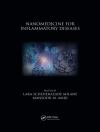Macrosocial Determinants of Population Health explores social factors such as culture, mass media, political systems, and migration that influence public health while systematically considering how we may best study these factors and use our knowledge from this study to guide public health interventions.
Starting from the dual premises that a population is not merely the sum of its individuals and that the improvement of population health is not at odds with the practical desire of improving the health of individuals, Sandro Galea and 33 expert contributors present chapters in three sections. The first section includes eleven chapters that each discuss one macrosocial determinant of population health. The factors covered by these chapters encompass a broad range of intellectual concerns, ranging from regulations and legal frameworks (global governance, patent law and policy), to overarching global phenomena (globalization, migration, urbanization, the media), to a specific consideration of the role of economic, political, and corporate policies and practices. The second section considers particular methodologic issues pertinent to those interested in the study of how macrosocial factors influence the health of populations, offering insights on ecological studies and causal inference, and weighing how we may best study the overlapping roles of determinants at local, state, and national levels. The third section presents a framework for interventions that aim to improve population health and innovative case studies that show this framework in action. Throughout, contributors emphasize the potential of population strategies to influence traditional risk factors associated with health and disease. Each section ends with Galea’s integrative chapters, bringing the observations and conclusions from the chapters into clear, usable focus.
Macrosocial Determinants of Population Health is a work of major theoretical, empirical, and practical interest fordisciplines as varied as public health, epidemiology, health promotion, sociology, and health policy. Its systematic field-building approach makes it as valuable to the public health provider as to the scholars and students studying the health of populations.
Inhoudsopgave
The Role of Macrosocial Determinants in Shaping the Health of Populations.- Determinants.- Macrosocial Determinants of Population Health in the Context of Globalization.- Urbanicity, Urbanization, and the Urban Environment.- Corporate Practices.- Political Economic Systems and the Health of Populations: Historical Thought and Current Directions.- Climate Change.- Global Governance.- Macroeconomics.- Culture.- Taxation and Population Health: “Sin Taxes” or Structured Approaches.- Patent Law and Policy.- Migration.- Mass Media.- Integrative Chapter: Macrosocial Determinants of Population Health.- Methods.- Identifying Causal Ecologic Effects on Health: A Methodological Assessment.- Ecological Studies.- Making Causal Inferences About Macrosocial Factors as a Basis for Public Health Policies.- Estimating the Health Effects of Macrosocial Shocks: A Collaborative Approach.- What Level Macro? Choosing Appropriate Levels to Assess How Place Influences Population Health.- Integrative Chapter: Methodologic Considerations in the Study of the Macrosocial Determination of Population Health.- Improving population health.- Acting Upon the Macrosocial Environment to Improve Health: A Framework for Intervention.- Case Studies: Improving the Macrosocial Environment.- Integrative Chapter: Modifying Macrosocial Factors to Improve Population Health.
Over de auteur
Sandro Galea is an Associate Professor in the Department of Epidemiology at the University of Michigan. He was formerly an Associate Director at the Center for Epidemiologic Studies at the New York Academy of Medicine. Dr. Galea co-edited the Handbook of Urban Health for Springer, and he is on the editorial board of the Journal of Urban Health.












